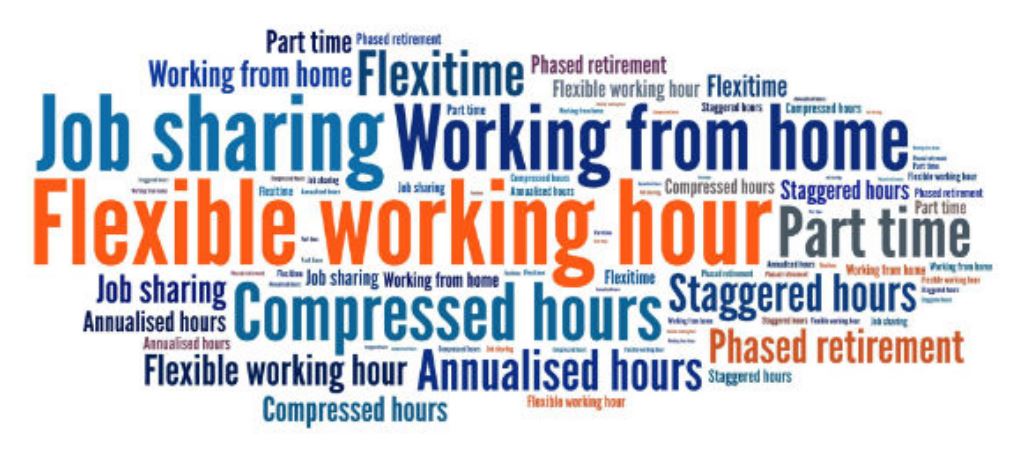Is Flexible Working Beneficial? An Investigation Into The Application Of Flexible Working Within Organisations
Flexible Working Within Organisations Dissertation – The working environment has undergone many radical changes over the last decade and will continue to do so as a result of technological advancement, social change and legal statutes. The expansion and normalisation of flexible working has continued unabated as more and more organisations adopt flexible working patterns to meet the needs of workers.
Flexible working has become more commonplace to retain talent, which would otherwise have been lost, to remain competitive. Take up of flexible working had been quite inconsistent. Many public sector organisations have readily accepted flexible working, while many private sectors companies lag behind. Two such organisations which have employed flexible working are the National Health Service (NHS) and PricewaterhouseCoopers (PwC). Both organisations utilise flexible working within their respective IT functions.
As a method of investigation into flexible working, employees of both organisations were asked for their views, preconceptions and experiences of flexible working through a series of quantitative and qualitative measures. The results suggest an inconsistent attitude towards flexible working; flexible working is viewed with suspicion when undertaken by others, while individuals feel as though they are more valuable to their organisations when working flexibly. There is definitely a margin of difference between the attitudes and methods of flexible working used in the different organisations, and this is reflected in the responses received.
The overriding response of the sample population is that while flexible working is welcomed into any organisation, there are some issues which need to be resolved before it can be fully accepted and integrated. Therefore, one can resolve that flexible working needs to be fully supported, explained and trusted before it can replace conventional fixed-hour, office-based working.
- 16,000 words – 90 pages in length
- Excellent use of literature
- Excellent in depth analysis
- Includes interview transcripts
- Ideal for IT, HRM and Business students
1: Introduction
Definition of scope
Objectives of study
Structure of study
2: Literature Review
Definitions of flexible working
Origins of flexible working
Flexible working compared with fixed hour & location working
Research into flexible working
Reasons for requesting flexible working
Types of flexible working
Types of flexible work
Attitudes towards flexible working
Proliferation of flexible working
Benefits of flexible working
Problems with flexible working
3: Research Methodology
Justification for methodology use
Approaches to research
The qualitative approach
The quantitative approach
Choice and justification
Methods of research
Questionnaires
Interviews
Analysis of the results
4: Primary Research & Analysis
Questionnaires
Awareness of types of flexible working
NHS sample’s opinion of the average flexible worker
NHS sample’s opinion of the average fixed-hour, office-based worker
PwC sample’s opinion of the average flexible worker
PwC sample’s opinion of the average fixed-hour, office-based worker
Total sample’s opinion of the average flexible worker
Total sample’s opinion of the average fixed-hour, office-based worker
Take up of flexible working, if offered
Awareness of flexible working scheme within the workplace
Numbers who had experienced flexible working
Types of flexible working experienced
Number of times flexible working had been experienced in the last month
Number of times flexible working had been experienced in the last year
Reasons why flexible working had been provided
Sample’s opinion of whether support had been provided
Items provided when working flexibly
NHS sample’s opinion of themselves working fixed-hour, office-based work
NHS sample’s opinion of themselves working flexibly
PwC sample’s opinion of themselves working fixed-hour, office-based work
PwC sample’s opinion of themselves working flexibly
Total sample’s opinion of themselves working fixed-hour, office-based work
Total sample’s opinion of themselves working flexibly
Adverse treatment from co-workers
Adverse treatment from managers
Adverse treatment from subordinates
Interviews
Conclusions
5: Discussion
Analysis findings
Summary of findings
6: Conclusions
References
Bibliography
Appendices

